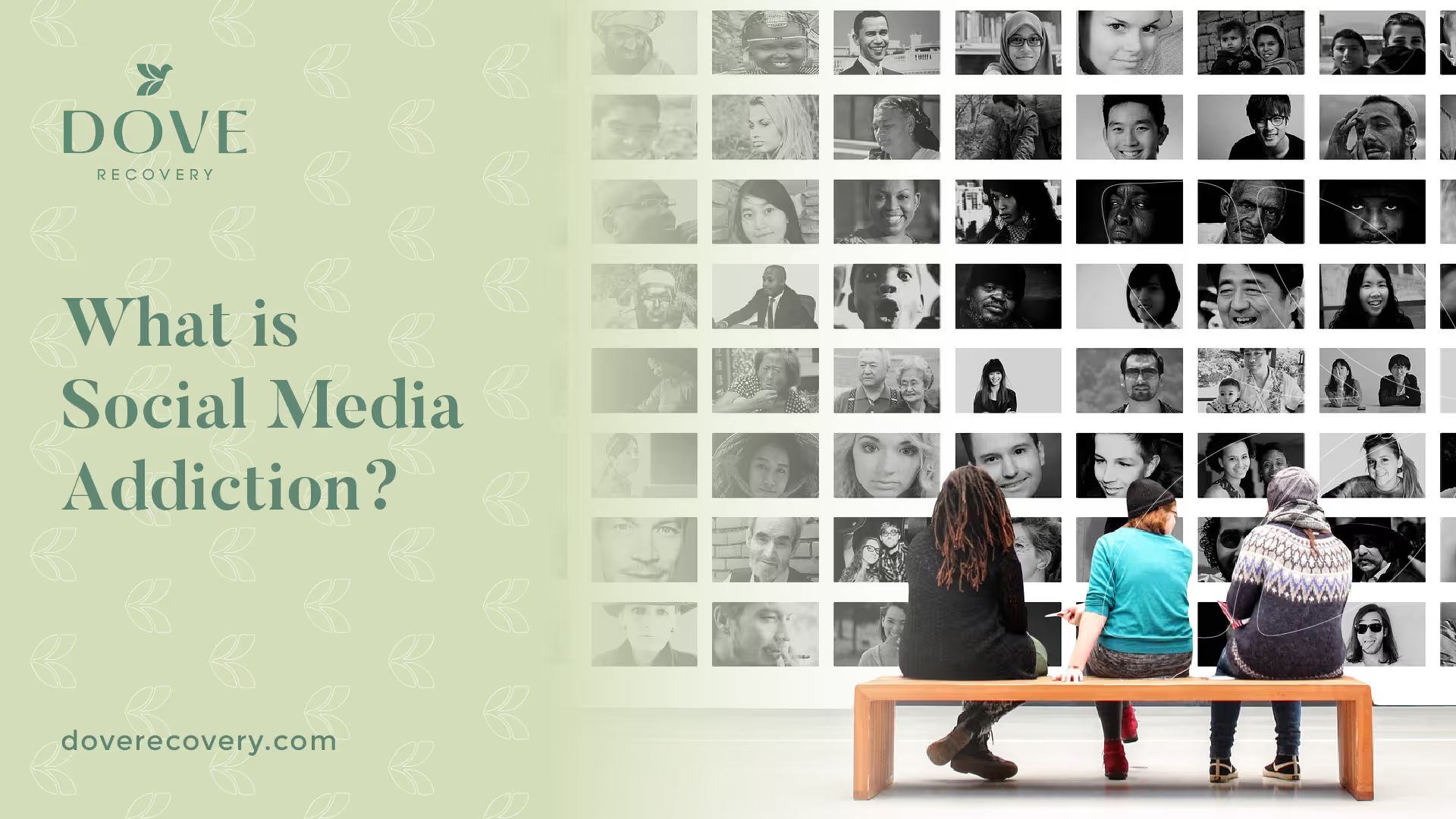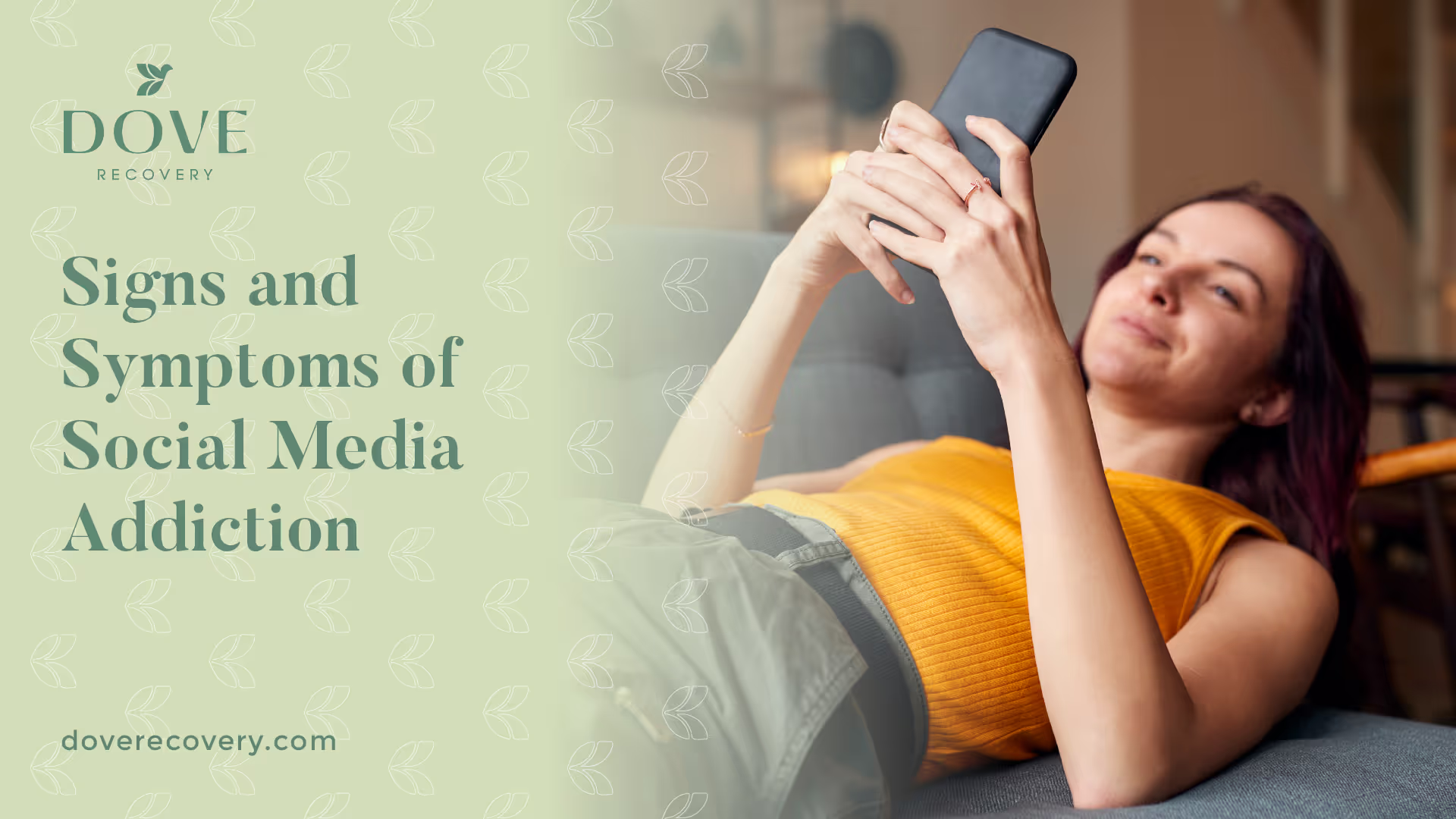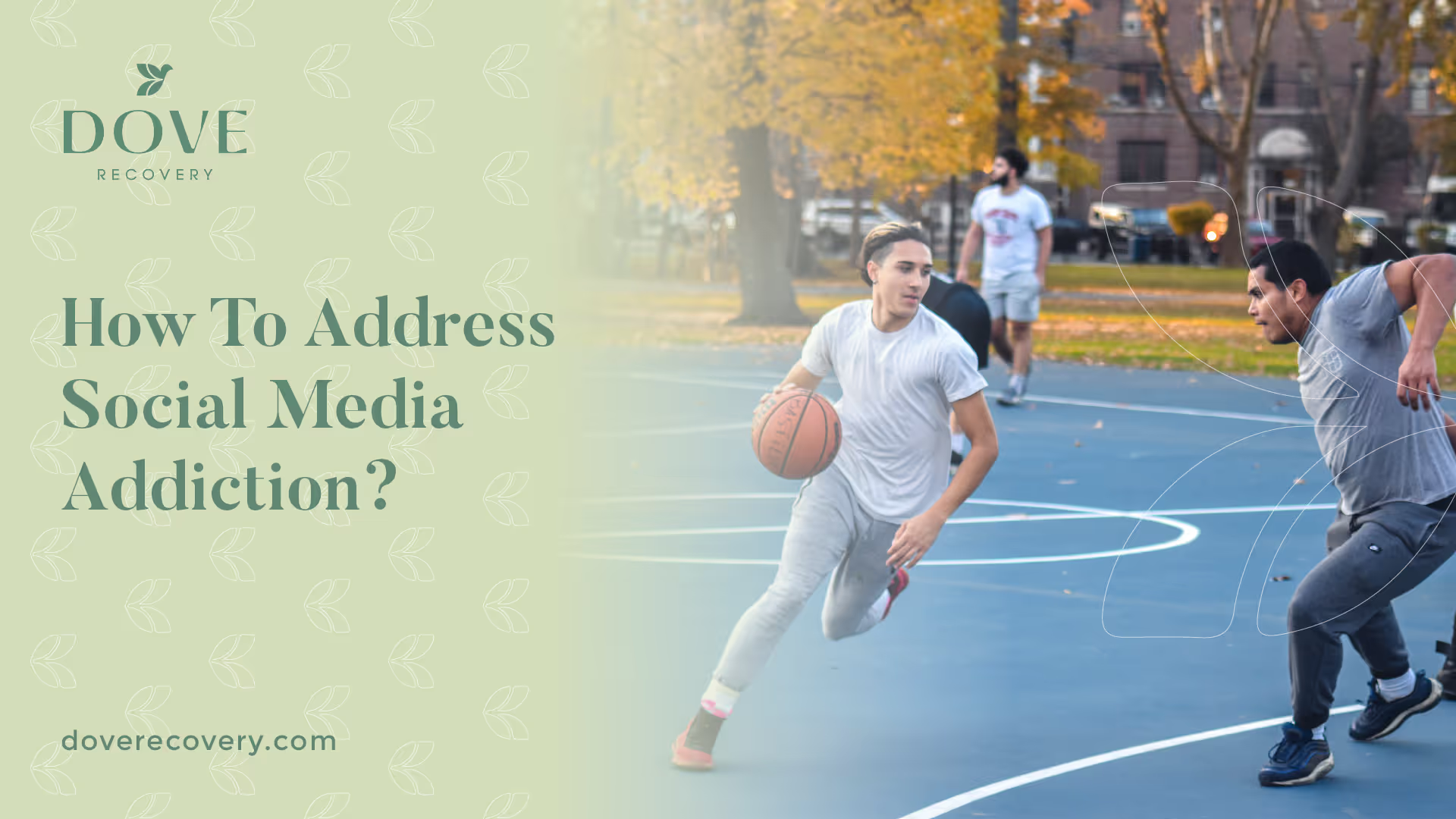Social Media Addiction: Understanding and Managing Addiction

Social media has become an integral part of our daily lives. From connecting with friends and family to getting the latest news and entertainment, social media platforms like Facebook, Twitter, and Instagram have made it easier for us to stay connected and engaged. However, the downside of social media is the growing addiction that affects millions of people around the world.
What is Social Media Addiction?

Social media addiction is a prevalent psychological disorder that has become increasingly common in recent years. A 2020 survey by the Pew Research Center found that 72% of US adults use social media, with the majority using it on a daily basis. Unfortunately, for some individuals, social media use can become compulsive and excessive, leading to addiction.
Social media addiction can manifest in several ways, including spending excessive amounts of time on social media platforms, neglecting important aspects of one's life such as work or school, and experiencing negative consequences such as depression, anxiety, and isolation. In fact, a study published in the Journal of Clinical Sleep Medicine found that individuals who spent more time on social media reported higher levels of anxiety and depression than those who spent less time on social media. Furthermore, a 2019 study by the Journal of Social and Clinical Psychology found that limiting social media use to 30 minutes per day resulted in significant reductions in loneliness and depression.
It is important to recognize the signs of social media addiction and seek help if necessary. Treatment options may include therapy, support groups, and self-help strategies such as setting limits on social media use. By taking steps to manage social media use, individuals can improve their mental health and overall well-being.
Why Is Social Media So Addicting?
- Social media platforms are designed to be addictive. They use algorithms that show users content they are most likely to engage with, keeping them hooked for longer periods of time.
- Social media provides instant gratification through likes, comments, and shares. This can trigger the release of dopamine in the brain, creating a pleasurable sensation that users crave.
- The fear of missing out (FOMO) is another reason why social media is so addicting. Users feel compelled to constantly check their feeds to stay up-to-date on the latest news and trends.
- Social media can also create a sense of validation and social connection. Users may feel more popular or accepted when they receive positive feedback from others on their posts.
- The ability to curate one's online persona can also contribute to social media addiction. Users may become obsessed with presenting a certain image or lifestyle online, leading them to spend countless hours perfecting their profiles and posts.
These factors combine to create a powerful pull towards social media use that can be difficult for some individuals to resist. By understanding why social media is so addicting, we can take steps to limit our use and prioritize our mental health and well-being.
Furthermore, social media addiction is often fueled by the algorithms used by social media platforms. These algorithms are designed to keep us engaged by showing us content that we are likely to engage with. This creates a cycle of addiction as we continue to scroll through our feeds in search of more content.
The negative consequences of social media addiction are well documented. Studies have shown that excessive use of social media can lead to depression, anxiety, and feelings of isolation. Social media addiction has also been linked to poor sleep patterns, decreased productivity, and lower academic performance.
Signs and Symptoms of Social Media Addiction

Social media addiction can be difficult to recognize, as it often begins as casual use that gradually becomes more frequent and excessive over time. However, there are several signs and symptoms that may indicate a problem with social media use. These include:
- Spending more time on social media than intended
- Neglecting responsibilities such as work or school in favor of using social media
- Feeling anxious or irritable when unable to access social media
- Experiencing negative consequences such as depression, anxiety, or decreased productivity due to social media use
- Using social media as a way to cope with negative emotions or stress
- Continuing to use social media despite negative consequences such as strained relationships or decreased mental health
If you or someone you know is experiencing these symptoms, it may be time to seek help for social media addiction. Treatment options include therapy, support groups, and self-help strategies such as setting limits on social media use. By addressing the signs and symptoms of social media addiction early on, individuals can take steps towards improving their mental health and overall well-being.
How Social Media Addiction Affects Academic and Professional Performance
Excessive social media use can have significant negative impacts on academic and professional performance. Here are some examples:
Decreased productivity
Spending large amounts of time on social media can lead to distractions and interruptions that decrease productivity. This can result in missed deadlines, incomplete tasks, and reduced work quality.
Poor time management
Social media addiction can make it difficult to manage time effectively, leading to procrastination and poor time allocation. This can result in missed opportunities and reduced productivity.
Lower academic grades
Studies have found that excessive social media use can be associated with lower academic grades. For example, a study published in the Journal of Educational Computing Research found that college students who spent more time on social media had lower GPAs than those who spent less time on social media.
In a study published in the Journal of Educational Computing Research, researchers found that college students who spent more time on social media had lower GPAs than those who spent less time on social media. Similarly, a study by the National Bureau of Economic Research found that employees who were given access to social media during work hours experienced a 1.5% decrease in productivity.
Furthermore, social media addiction can also lead to poor time management skills. Individuals may spend hours scrolling through their feeds instead of completing important tasks or assignments. This can result in missed deadlines, decreased quality of work, and ultimately affect one's professional reputation.
It is important for individuals to recognize the impact that social media addiction can have on their academic and professional lives and take steps to manage their use accordingly. This may include setting limits on social media use during certain times of the day or disabling notifications to minimize distractions.
By prioritizing academic and professional responsibilities over social media use, individuals can improve their overall performance and achieve greater success in their personal and professional lives.
The Connection Between Social Media Addiction and Mental Health Disorders
Social media addiction has been found to be associated with several mental health disorders that can negatively impact an individual's well-being. Here are some examples:
Anxiety
Social media addiction may increase anxiety levels in individuals, particularly among those who use social media as a means of social comparison. This can lead to feelings of inadequacy and low self-esteem.
Depression
Studies have found that social media addiction is associated with increased levels of depression. This is thought to be due to the negative social comparisons that can occur on social media, as well as the potential for cyberbullying and harassment.
Attention Deficit Hyperactivity Disorder (ADHD)
Excessive social media use has been linked to ADHD symptoms such as impulsivity, hyperactivity and inattention. A study published in the Journal of Attention Disorders suggested that social media use may be a risk factor for ADHD in adolescents.
Overall, social media addiction can have negative impacts on mental health and well-being, including anxiety, depression, and ADHD. It is important for individuals to recognize the signs of addiction and take steps to manage their social media use in order to maintain their mental health.
A study published in the Journal of Adolescent Health found that teenagers who spent more than five hours per day on social media were twice as likely to develop symptoms of depression compared to those who spent less than an hour per day on social media. Similarly, a study by the American Psychological Association found that individuals who checked their social media accounts frequently throughout the day had higher levels of stress and anxiety.
Furthermore, social media addiction can exacerbate symptoms of existing mental health disorders. For example, individuals with ADHD may find it difficult to resist the constant distractions and notifications associated with social media use. This can result in decreased focus and productivity, leading to feelings of frustration and anxiety.
It is important for individuals with pre-existing mental health conditions to be aware of the potential risks associated with social media addiction. Seeking professional help from a therapist or counselor can provide support for managing both mental health concerns and addiction to social media.
By recognizing the connection between social media addiction and mental health disorders, individuals can take steps to prioritize their well-being by reducing their dependence on these platforms. Limiting social media use, seeking support from loved ones or professionals, engaging in other activities that promote positive mental health such as exercise or meditation are all effective ways to manage addiction while promoting good mental health.
How To Address Social Media Addiction?

If you suspect that you or someone you know may be struggling with social media addiction, it is important to take action and seek help. Here are some steps that can be taken to address social media addiction:
Acknowledge the problem
The first step in addressing social media addiction is recognizing that it is a real and serious issue. This can involve reflecting on your own behavior and identifying patterns of excessive social media use.
Seek professional help
If you suspect that you may be addicted to social media, it is important to seek professional help. This can include counseling, therapy, or support groups. A mental health professional can help you develop strategies for managing your social media use and addressing underlying psychological issues.
Set limits on social media use
One effective strategy for managing social media addiction is to set limits on your use of social media platforms. This can involve setting specific times of day when you check your accounts, or using tools such as app blockers to limit your access to social media sites.
Engage in alternative activities
Another way to combat social media addiction is to find alternative activities that provide a sense of fulfillment and satisfaction. This can include spending time with friends and family, pursuing hobbies or interests, or engaging in exercise and physical activity.
By taking these steps, individuals can begin to address their social media addiction and improve their overall well-being.
In addition, individuals can take steps to reduce their social media use. This can include setting time limits for social media use, disabling notifications, and taking regular breaks from social media. It is also important to engage in other activities such as exercise, hobbies, and spending time with friends and family.
Conclusion
In conclusion, social media addiction is a growing concern that affects millions of people worldwide. While social media platforms have made it easier than ever to stay connected and engaged, they can also be addictive and lead to negative consequences such as depression, anxiety, and poor academic or professional performance. By understanding the reasons behind social media addiction and seeking help when necessary, individuals can take steps to reduce their dependence on these platforms and prioritize their mental health and well-being. It is important for society as a whole to recognize the impact of social media addiction on individuals' lives and work towards creating a healthier relationship with these technologies. Ultimately, by managing our use of social media effectively, we can reap its benefits while avoiding its potential pitfalls.
Sources:
- Mayo Clinic. (2021). Social media addiction. Retrieved from https://www.mayoclinic.org/healthy-lifestyle/consumer-health/in-depth/social-media-addiction/art-20304931
- American Psychological Association. (2017). APA survey finds social media usage associated with stress for some Americans. Retrieved from https://www.apa.org/news/press/releases/stress/2017/social-media
- Pew Research Center. (2018). Social media use in 2018. Retrieved from https://www.pewresearch.org/internet/2018/03/01/social-media-use-in-2018/
- https://www.prescotthouse.com/blog/social-media-addiction
- https://www.rosewoodrecovery.com/blog/addiction-to-cell-phone-statistics
